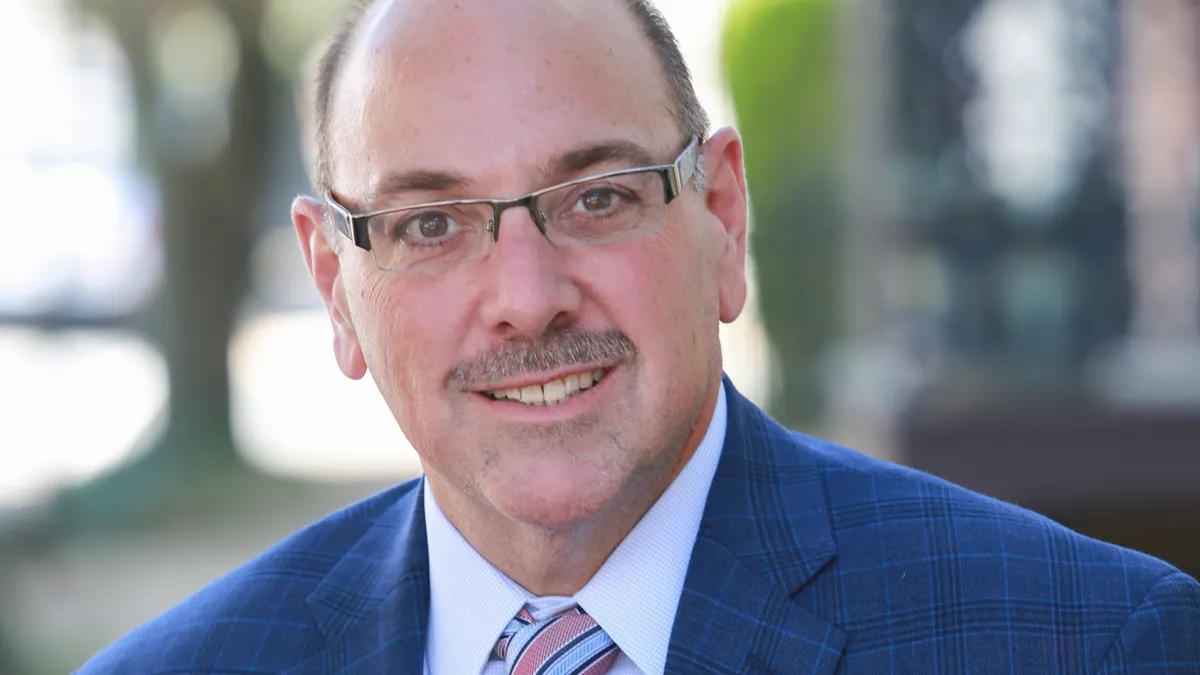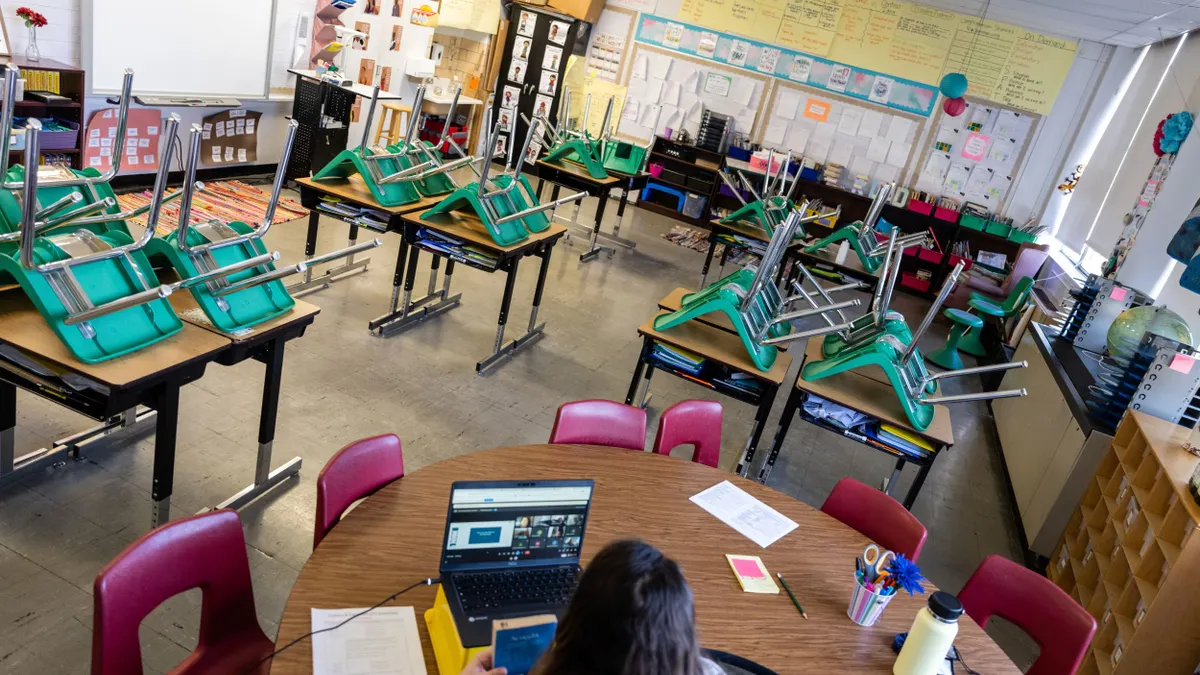After last month's tragic mass shooting at Robb Elementary School in Uvalde, Texas, school safety is once again top of mind for educators and school communities. As districts navigate or reevaluate school safety policies, and violent threats increase, it’s important that parents have a seat at the table, said Vito Borrello, executive director of the National Association for Family, School and Community Engagement.
We recently caught up with Borrello, who detailed how it can be difficult to engage with families to address emerging school safety issues if schools don’t first work to build trust with communities.
EDITOR'S NOTE: This interview has been edited for brevity and clarity.
K-12 DIVE: How can family engagement help school communities feel safer amid increased threats or when school shootings make national headlines?
VITO BORRELLO: First of all, family community engagement is about building relational trust between families. So it's not about just communication. It's about developing a relationship, a trusting relationship.
Really, family engagement in its most important element should inform instruction. Because if you really think about knowledge of students and student learning, who knows a student better than their parent?
If a school has that level of trust with a family already and there's a knowledge of student learning, that would suggest then that they would understand about trauma-informed care. Then this all extends to how schools and families address issues like the shooting in Texas. It doesn't necessarily stop the shooting, but there's a level of trust to be able to say how a school and a community are working together to address whatever an issue is.
Family community engagement is not about engaging only those who are the easiest to engage, or only engaging one race or culture. It's about engaging everyone, and understanding that there's not a cookie-cutter approach to that. We're meeting families where they are, literally and figuratively.
“This is about the community and the fact that someone chose to use the school for this crime, but it really isn't solely the school's problem. It's the community's problem.”

Vito Borrello
Executive director of the National Association for Family, School and Community Engagement
And so I would suggest that could extend to so many things, including what happened in Texas and including what happened in Buffalo. It just so happens that the Texas issue was in a school, but the reality is these gun-related issues affect communities, whether it's a school community or the community as a whole.
How do schools navigate communities that might be split on what safety looks like in schools?
BORRELLO: It's very difficult to have the kinds of dialogue that you're talking about around a crisis if there isn't trust to begin with, particularly in a community of color where trust is a huge issue based on all kinds of history. That is why I suggest that prioritizing effective family and community engagement is really a recipe to improving our democracy and treating families as true partners in their child's education. That means that when there are these kinds of decisions or challenges, bringing parents together is really important.
Ideally, you have a situation where you've got a great parent decision-making body … and there's great parent leadership. There are opportunities and ways for that trusted group to be working with the school community and engaging parents throughout the community.
That's often not the case. So absent that, then I think leveraging trust through a community organization that is trusted is really important — whether that is a place of worship, whether that is a community center that parents frequent and trust. Where you're partnering with a trusted entity that's helping to co-lead that dialogue with you, I think, enables this not to just be about the school.
Because in the case of Texas, this is not just about the school. This is about the community and the fact that someone chose to use the school for this crime, but it really isn't solely the school's problem. It's the community's problem.
That's where, ideally, a school has really good partnerships in the community, to deal with these kinds of crises — and other kinds of crises — and supporting families, particularly in Title I communities. That should happen in all communities, but in Title I communities, where we know there are far more complexities to engaging families not because they're hard to reach — sometimes people call them “hard to reach” families — but it's because the system hasn't figured out how to reach them.
Is there a role for schools to engage with families and law enforcement regarding school safety?
BORRELLO: Certainly, law enforcement is part of the community. I would absolutely expect law enforcement in a situation like this to be at the table. In terms of what the community decides how law enforcement is exercised within that school, that depends on the community. That depends on a lot of circumstances. I don't think there's a cookie-cutter approach.
But it is about the community coming together, and law enforcement absolutely, in my opinion, should be at the table.
When the focus is on building trusting relationships to work together, then there's a much better opportunity for a constructive outcome than when there isn't.
If people are perceiving that a school is not safe, that is almost foundational. You can't even think about learning if you haven't addressed the school safety issues. So almost from a hierarchical perspective, that has to be paramount.
In this case, again, all the more reason why if you don't have a trusting relationship with families and you're dealing with a crisis like this, then let this be the impetus to bring people together to build trusting relationships. Then at least something constructive is coming out of this terrible tragedy.




















